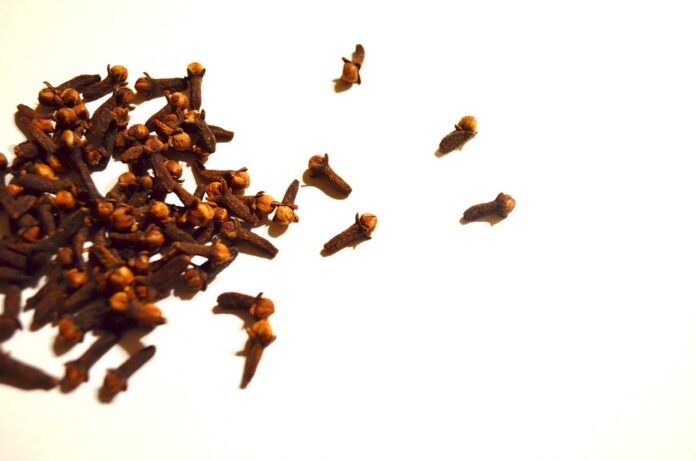Sustainability in Cloves Farming: Reducing Environmental Impact and Enhancing Soil Health
Cloves farming plays a significant role in the global spice industry, with countries such as Indonesia, Madagascar, and Tanzania being major producers. However, traditional farming practices in cloves cultivation can have adverse effects on the environment and soil health. In recent years, there has been a growing emphasis on sustainable farming practices to reduce environmental impact and improve soil quality. This report will discuss various strategies and techniques that can be implemented in cloves farming to achieve these goals.
Environmental Impact of Conventional Cloves Farming
Conventional cloves farming practices often involve the use of chemical fertilizers, pesticides, and herbicides to boost crop yields and control pests. These chemicals can have detrimental effects on the environment, such as soil degradation, water pollution, and biodiversity loss. Additionally, the intensive use of synthetic inputs can lead to soil erosion, nutrient depletion, and decreased soil fertility over time.
Strategies for Reducing Environmental Impact
1. **Organic Farming**: Transitioning to organic cloves farming can significantly reduce the environmental impact of cultivation. Organic farming practices focus on natural inputs, such as compost, manure, and crop rotation, to maintain soil health and fertility. By avoiding synthetic chemicals, organic farmers can protect soil biodiversity, enhance water quality, and promote sustainable land use.
2. **Agroforestry**: Integrating cloves cultivation with agroforestry systems can help to improve soil health and biodiversity. Agroforestry involves planting trees alongside crops, which can provide shade, nutrient cycling, and habitat for beneficial organisms. By diversifying the agricultural landscape, farmers can enhance ecosystem services, conserve water, and mitigate climate change.
3. **Water Conservation**: Implementing water-efficient irrigation techniques, such as drip irrigation or rainwater harvesting, can reduce water usage in cloves farming. By optimizing water management practices, farmers can minimize water wastage, improve crop productivity, and protect freshwater resources.
4. **Integrated Pest Management (IPM)**: Adopting IPM practices can help to control pests and diseases in cloves farming without relying on chemical pesticides. IPM strategies involve monitoring pest populations, promoting natural predators, and using biological controls to manage pest outbreaks. By reducing pesticide use, farmers can protect beneficial insects, soil microorganisms, and human health.
Enhancing Soil Health in Cloves Farming
1. **Soil Testing**: Conducting regular soil tests can provide valuable information about soil nutrient levels, pH balance, and organic matter content. By analyzing soil samples, farmers can tailor their fertilizer applications and crop management practices to meet the specific needs of the soil. This can help to prevent nutrient imbalances, optimize crop growth, and improve soil health over time.
2. **Cover Cropping**: Planting cover crops, such as legumes or grasses, can help to protect soil from erosion, suppress weeds, and enhance soil structure. Cover crops can also add organic matter to the soil, increase microbial activity, and improve nutrient cycling. By incorporating cover cropping into their farming systems, cloves growers can build soil resilience, reduce erosion, and boost crop yields sustainably.
3. **Crop Rotation**: Rotating cloves with other crops can break pest and disease cycles, improve soil structure, and enhance nutrient availability. Crop rotation can also help to diversify the farm ecosystem, support beneficial organisms, and reduce the reliance on chemical inputs. By practicing crop rotation, farmers can maintain soil health, increase crop resilience, and promote sustainable agriculture.
4. **Compost Application**: Applying compost to cloves fields can enrich the soil with organic matter, nutrients, and beneficial microbes. Compost can improve soil structure, water retention, and nutrient availability, leading to healthier crops and increased yields. By recycling organic waste into compost, farmers can reduce the need for synthetic fertilizers, minimize waste generation, and enhance soil fertility naturally.
Industry Insights and Financial Data
The global cloves market is valued at approximately $1.5 billion, with a steady growth rate of 3-4% per year. Sustainable cloves farming practices are gaining traction among consumers, retailers, and food companies, driving demand for ethically sourced and environmentally friendly products. Companies such as Frontier Co-op, Mountain Rose Herbs, and Simply Organic have committed to sourcing organic cloves from sustainable farms to meet consumer expectations for quality, traceability, and social responsibility.
In conclusion, adopting sustainable farming practices in cloves cultivation is essential for reducing environmental impact, enhancing soil health, and ensuring long-term viability of the spice industry. By implementing organic farming methods, agroforestry systems, water conservation techniques, and soil health practices, cloves farmers can protect the environment, improve crop quality, and support sustainable agriculture for future generations.




